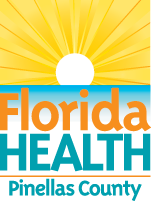It's a New Day in Public Health.
The Florida Department of Health works to protect, promote, and improve the health of all people in Florida through integrated state, county, and community efforts.
DOH-PINELLAS LIFTS BLUE-GREEN ALGAE BLOOM ALERT FOR EAGLE LAKE PARK (LAKE #2)
October 18, 2021
The Florida Department of Health in Pinellas County (DOH-Pinellas) has lifted the health alert for the presence of harmful blue-green algal toxins in Eagle Lake Park (Lake #2), 1800 Keene Rd, Largo.
The alert had been issued on Sept. 13 in response to water sample taken. The warning signs posted around the lake will be removed.
What is blue-green algae?
Blue-green algae are a type of bacteria that is common in Florida’s freshwater environments. A bloom occurs when rapid growth of algae leads to an accumulation of individual cells that discolor water and often produce floating mats that emit unpleasant odors.
Some environmental factors that contribute to blue-green algae blooms are sunny days, warm water temperatures, still water conditions and excess nutrients. Blooms can appear year-round but are more frequent in summer and fall. Many types of blue-green algae can produce toxins.
Is it harmful?
Blue-green algae blooms can impact human health and ecosystems, including fish and other aquatic animals.
For additional information on potential health effects of algal blooms, visit floridahealth.gov/environmental-health/aquatic-toxins.
Find current information about Florida’s water quality status and public health notifications for harmful algal blooms and beach conditions by visiting ProtectingFloridaTogether.gov. Protecting Florida Together is the state’s joint effort to provide statewide water quality information to prioritize environmental transparency and commitment to action.
What do I do if I see an algal bloom?
The Florida Department of Environmental Protection collects and analyzes algal bloom samples. To report a bloom to DEP, call the toll-free hotline at 855-305-3903 or report online.
To report fish kills, contact the Florida Fish and Wildlife Research Institute at 1-800-636-0511.
Report symptoms from exposure to a harmful algal bloom or any aquatic toxin to the Florida Poison Information Center, call 1-800-222-1222 to speak to a poison specialist immediately.
Contact your veterinarian if you believe your pet has become ill after consuming or having contact with blue-green algae contaminated water.
If you have other health questions or concerns about blue-green algae blooms, call DOH-Pinellas at (727) 507-4336.
-end-
For more information about DOH-Pinellas, go to www.PinellasHealth.com and follow us on Twitter @HealthyPinellas.
-end-
About the Florida Department of Health
The department, nationally accredited by the Public Health Accreditation Board, works to protect, promote and improve the health of all people in Florida through integrated state, county and community efforts.
Follow us on Facebook, Instagram and Twitter at @HealthyFla. For more information about the Florida Department of Health, please visit www.FloridaHealth.gov.




Connect with DOH